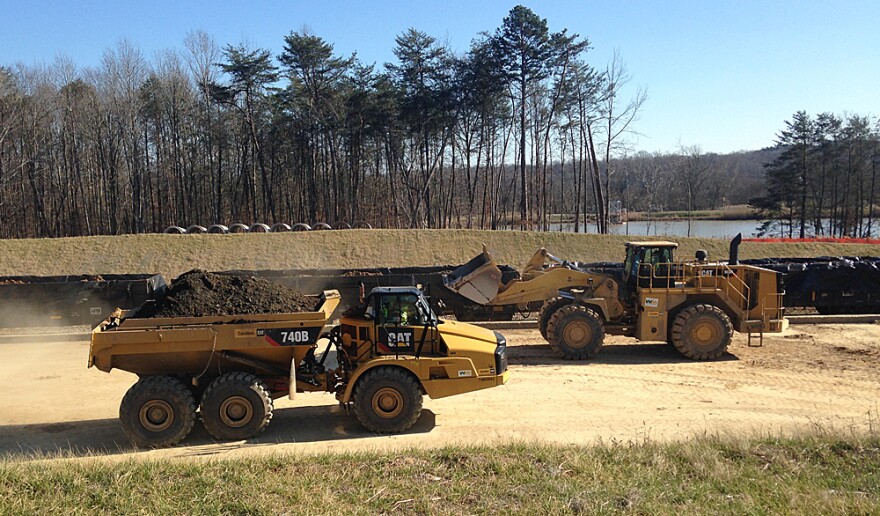Republican lawmakers and Governor Pat McCrory have reached a compromise over coal ash avoiding another round in the courts.
The measure, known as HB630, would mandate Duke Energy provide permanent drinking water to homes near seven coal ash pits across the state; eliminate the divisive Coal Ash Commission set forth by the General Assembly; and give the governor's administration oversight of the process, ending a two-year power struggle.
The agreement still needs final approval from legislators and Govenor McCrory.
Officials with Duke Energy said the company supports the bill and will work with the legislature to continue to seek solutions to protect the environment and local communities.
"While science and engineering continue to demonstrate that we have not influenced plant neighbors’ wells, we understand the importance of providing plant neighbors with peace of mind as part of this process," Duke Spokesman Jeff Brooks said in a statement. "We will review these provisions and monitor the bill’s progress as it moves forward."
Lawmakers and McCrory have been stuck in a disagreement since 2014 about who has the authority to oversee coal ash cleanup. This dispute has already landed in the courts where the governor won a lawsuit pertaining to the balance and separation of powers.
The state's Department of Environmental Quality will have sole authority. Lawmakers and environmental groups have been critical of that arm of the administration in recent years.
"There is a great deal of deference here due to legislators, leaders who are trying to deal with a balance of power issue, a separations of power issue, that is not about coal ash at all," Rep. Chuck McGrady (R-Hendersonville) said in his office Tuesday afternoon.
"I understand the compromise can be made. I just don't agree with the policy part of the bill," said McGrady, a former Sierra Club president and right-leaning environmentalist, adding he would not be voting for the bill.
Senate Rules Chair Tom Apodaca (R-Henderson) told his chamber Tuesday night that a deal had been reached with the governor and that this new measure would adhere to a court ruling.
The bill requires Duke to provide residents live near coal ash pits with a water line by 2018. In return for that provision, as well as dealing with any dam issues, coal ash pits will be reclassified as low risk.
Environmental groups quickly chastised the legislation.
"This coal ash bill is damning proof that the families and communities of North Carolina can't rely on state politicians to protect their drinking water supplies from Duke Energy's coal ash pollution,"said Frank Holleman, senior attorney at the Southern Environmental Law Center, in a statement.
Added Holleman: "This Duke Bailout Bill is a betrayal of the North Carolina people who participated in good faith in the process and followed the rules established by the legislature in 2014. Public participation led to the conclusion that the law and science require Duke Energy to excavate its coal ash from its leaking, unlined pits. Duke Energy didn't like the results and so today the North Carolina Senate turned its back on the people and clean water and threw into the trash can public process, facts, science, and the law."
Another portion of this bill requires the nation's largest utility to establish three recycling centers in the state. Those will process 300,000 tons of coal ash each year for use in other projects.








